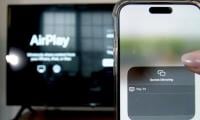Johannesburg: Namibia has discontinued the use of Russia’s Sputnik V Covid-19 vaccine following concerns raised by neighbouring South Africa, the health ministry said on Sunday.
Neighbouring South Africa earlier this week said it would not approve Sputnik V due to concerns it could increase the risk of HIV infection among men, a claim the vaccine’s developer says is unfounded.
The Namibian health ministry said in a statement that following South Africa’s decision it was suspending, with immediate effect, use of the shots until the formula is listed for emergency use by the World Health Organisation.
"The reason for discontinuation of the administration of the vaccine is being done out of abundance of caution that men who received Sputnik V may be at higher risk of contracting HIV when exposed to it," said the ministry.
Namibia had taken delivery of a Serbian donation of 30,000 Sputnik doses -- out of which less than 120 have been administered so far.
South Africa’s health products regulator on Monday said it would not authorise use of Sputnik based on earlier studies testing the safety of a modified form of adenovirus -- a type of virus that causes respiratory infections -- known as the Ad5 and contained in the jab.
The regulator said two previous studies, one in South Africa and one in the Americas, found a heightened risk of HIV infection among men linked to the Ad5-vectored vaccine. In both trials, "administration of an Ad5-vectored vaccine was associated with enhanced susceptibility/acquisition of HIV in men", the regulator said last week.
Russia’s Gamaleya Centre, which developed Sputnik V, says any allegation of a link between the vaccine and HIV is unfounded. It says clinical studies on more than 7,000 participants showed "there was no statistically significant increase of HIV-1 infection among adenovirus type-5 vectored vaccine recipients."
Meanwhile, two million people who are eligible for a Covid-19 booster vaccination will receive their invitation from the NHS this week. NHS England said more than five million people have already been given the additional jab since the vaccination programme began administering them last month. Anyone who receives a text or letter inviting them for a booster shot is urged to take up the offer as soon as possible.
NHS England said 7.5 million people have already been invited by text, email and letter, encouraging them to book through the National Booking Service. The NHS is following guidance that boosters should be delivered at least six months after the second dose, with current evidence suggesting this is the best time to increase immunity to Covid-19.
Messages will come from NHSvaccine and will include a link to the NHS website. Currently around 10 million people in England are eligible for a booster, including health and care workers, those with underlying health conditions, and people aged 50 and over.
NHS medical director Professor Stephen Powis said: "Winter is coming and infection rates are rising and so it''s now really important that everyone receiving their invite for a booster vaccine from the NHS this week books in at one of the convenient vaccinations sites around the country offering this crucial, additional protection.
"Thanks to NHS staff, nine in 10 people have had a first dose, saving tens of thousands of lives, and now more than five million boosters have been delivered in the first month of the rollout.
"I would urge anyone receiving an invite this week to book in as soon as possible - the booster dose is proven to significantly increase protection against Covid and will provide vital protection this winter."
Prime Minister Boris Johnson, who has resisted pleas from health leaders for tighter restrictions despite the rising number of cases, said vaccines will get the country through the winter and out of the pandemic.
But Professor Adam Finn, who is on the Joint Committee of Vaccination and Immunisation (JCVI), said the vaccination programme will not be enough to bring the current coronavirus numbers under control.
He said that while vaccines are very effective at stopping people from getting seriously ill, they are not so effective at stopping infections altogether or halting the spread of the virus.
"They do have an effect on that, but they''re not by themselves going to be enough at the present time to keep the spread of the virus under control.
"And we do need to see people continuing to make efforts to avoid contact, to avoid transmission, and to do other things as well as get vaccinated if we''re going to stop this rise from going up further," he told Trevor Phillips On Sunday on Sky News. Prof Finn added: "I would like to re-emphasise the fact that the vaccine programme by itself, in the current situation, even if things go optimally, is not, in my opinion, enough to bring things under control.
"We do need to have people using lateral flow tests, avoiding contact with large numbers of people in enclosed spaces, using masks, all of those things now need to happen if we''re going to stop this rise and get things under control soon enough to stop a real meltdown in the middle of the winter."
In a related development, Fiji will reopen its border for quarantine-free travel for tourists from some countries starting Nov. 11, according to a press statement on Sunday.
Tourists from Australia, New Zealand, the United States, Britain, the United Arab Emirates, Canada, Qatar, Germany, Spain, France, South Korea, Singapore, Switzerland, Japan and most Pacific island countries and territories will be allowed to enter Fiji without quarantine requirements from Nov. 11, ahead of the official reopening on Dec. 1.
The travellers are required to show proof of vaccination and test negative for the virus 72 hours prior to their departure. After arriving in Fiji, they will spend their first two days inside their hotel premises, and can use all hotel amenities.
A Rapid Diagnostic Test taken 48 hours after their arrival will allow them to explore the travel-safe areas, where they can take part in tours, shop for souvenirs and eat at restaurants.
The Fijian government said these travel-safe areas will be large enough for tourists to enjoy the best of Fiji, but restrictive enough to protect areas with low vaccination coverage. For returning residents or those visiting friends and relatives after spending three days on hotel premises in Fiji, a negative Covid-19 test result will allow these travellers to enter Fijian communities in any location.







